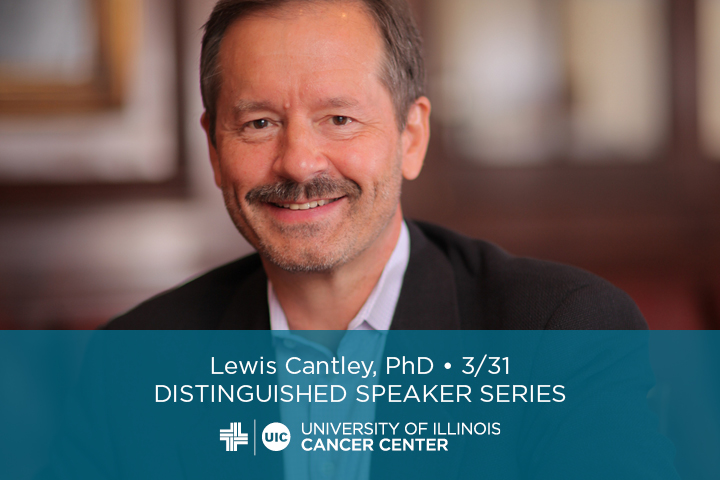
- This event has passed.
Lewis Cantley, PhD – University of Illinois Cancer Center Distinguished Speaker Series
March 31, 2021 @ 12:00 pm - 1:00 pm CDT

 Lewis C. Cantley, PhD
Lewis C. Cantley, PhD
Meyer Director, Sandra and Edward Meyer Cancer Center
Professor of Cancer Biology, Weill Cornell Medicine
Lewis Cantley, PhD, has made significant advances in cancer research stemming from his discovery of the signaling pathway phosphoinositide 3-kinase (PI3K) in 1984. A graduate of West Virginia Wesleyan College (B.S., Chemistry, 1971) and Cornell University (Ph.D., Biophysical Chemistry, 1975), Dr. Cantley has been a professor at Tufts University and Harvard University. He served as director of the Beth Israel Deaconess Cancer Center and is currently the Meyer Director of the Sandra and Edward Meyer Cancer Center at Weill Cornell Medicine.
The author of more than 400 papers and 50 book chapters, Dr. Cantley has received several prestigious accolades, including membership in the American Academy of Arts and Sciences, the National Academy of Sciences, the Institute of Medicine of the National Academies, and the European life sciences academy EMBO.
Event will be held virtually and registration is required.
Abstract: The gene encoding the enzyme PI 3-Kinase-alpha, PIK3CA is one of the most frequently mutated oncogenes in human cancer and the gene encoding the phosphatidylinositol-3,4,5-trisphosphate 3-phosphatase, PTEN is second only to TP53 as the most frequently mutated tumor suppressor in human cancers. These mutations both enhance the ability of the insulin receptor and other protein-Tyr kinases to generate the lipid Phosphatidylinositol-3,4,5-trisphosphate and thereby stimulate downstream signaling to AKT and other cell growth pathways. Targeting this pathway has been a challenge since PI 3-Kinase-alpha inhibitors cause acute insulin resistance in muscle and liver and consequent hyperglycemia and hyperinsulinemia. Importantly, the hyperinsulinemia can override the effect of the PI3-Kinase inhibitor on the tumor, compromising effectiveness. We are exploring ways to circumvent these complications to improve effectiveness of drugs. We are also examining other drug targets, including metabolic enzymes, that could cooperate with PI 3-Kinase inhibitors to enhance killing of tumor cells.
